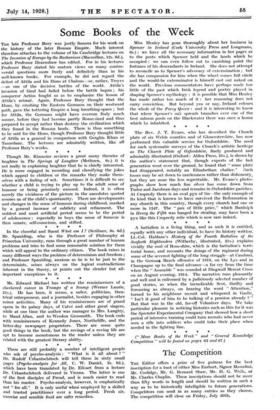A battalion is a living thing, and as such it
is entitled, equally with any other individual, to have its history written: Lt.-Col. Haldane's History of the Fourth Battalion of the Seaforth Highlanders (Witherby, illustrated, 21s.) explains vividly the soul of Ross-shire, which is the battalion's terri- torial home, and recounts the doings of the regiment during some of the severest fighting of the long struggle—at Cambmi, in the Getman March offensive of 1918, on the Lys and in Champagne up to the final advance—a far cry from the time when the " Assemble " was sounded at Dingwall Merest Cross on an August evening, 1914. The narrative runs pleasantly and well and is enlivened by a judiciously selected number of good stories, as when the ineradicable Scot, thrifty and foreseeing as always, on hearing the word " Attention," turned to his neighbour recruit and whispered in Gaelic, " Isn't it good of him to be talking of a pension already ? " But that was in the old, far-off Volunteer days. We take particular pleasure in noticing histories such as this for it was the Spectator Experimental Company that showed how a short period of intensive training could turn recruits who had never seen a rifle into soldiers who could take their place when needed in the fighting line.




































 Previous page
Previous page